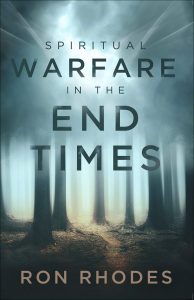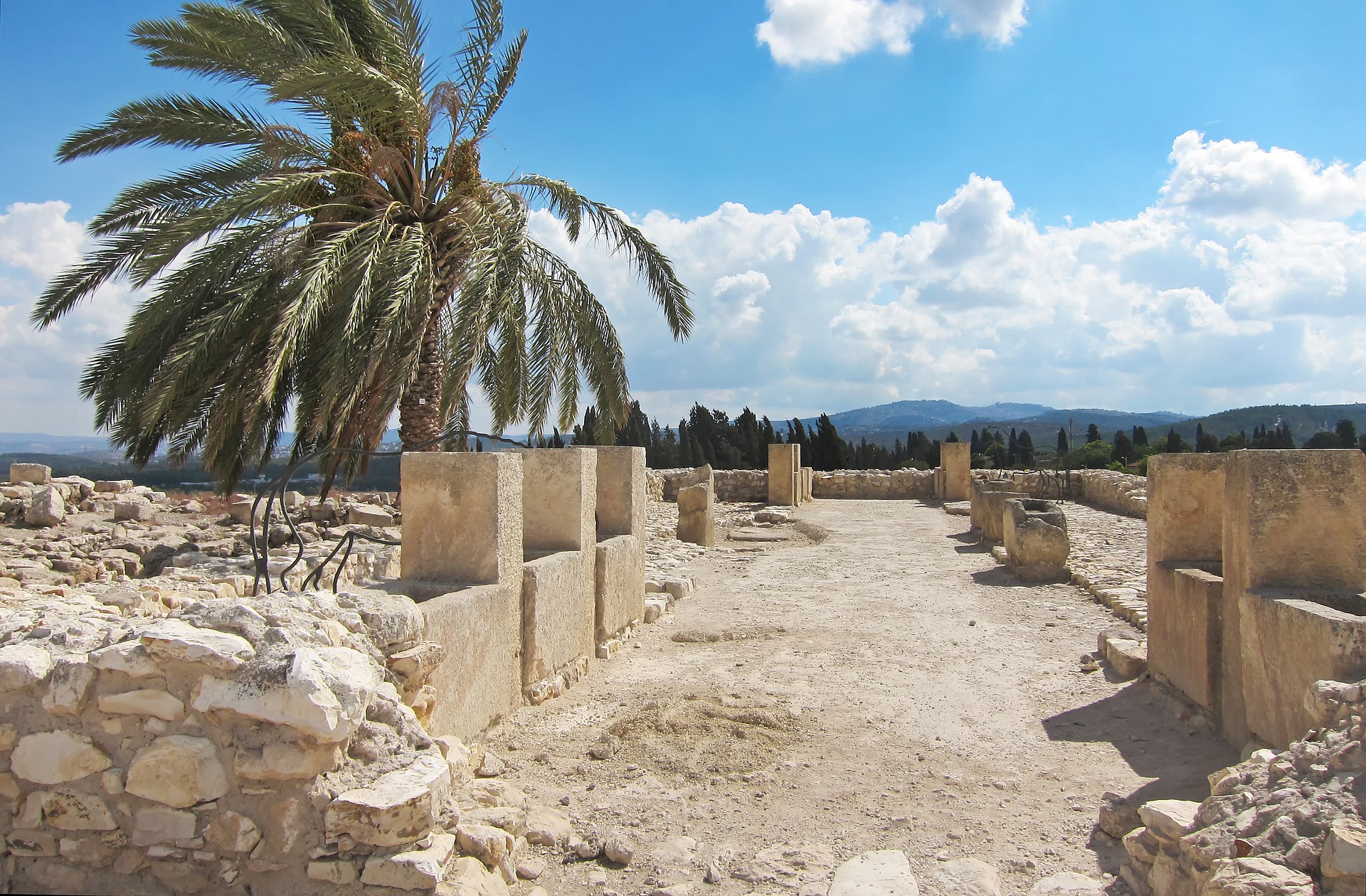Ron Rhodes: Multiple Middle East Prophecies are Converging
War horses were once kept at the ancient stable at Megiddo. According to Bible prophecy, in the End Times two huge confederations of nations will gather in this region of the Middle East for what is called The Battle of Armageddon. (Image by Jim Black from Pixabay)
In his discourse on the Mount of Olives, Jesus speaks about His Second Coming and the signs of the last days and warns his disciples, “See to it that no one deceives you.” Jesus then lists a series of sobering events which would earmark the end of the age. Two thousand years later – with endless wars, earthquakes and famines in various places, political upheaval, alarming hatred of “the other”, and a world-wide pandemic – many wonder if we are finally on this long-predicted precipice.
Author Ron Rhodes has been considering the signs of the end times since he was a teen. Rhodes has written over 85 books which have sold in the millions, and are translated into numerous languages. But unlike some sensationalists who have seized upon one “sign” or another to captivate a credulous crowd, Rhodes has always championed a reasonable approach to understanding the Word of God. We recently spoke with Rhodes about his life and conversion to Bible-based Christianity; his views on cataclysmic cults, the malevolent Antichrist, and Israel; happenings he believes are clear signs of a coming apocalypse; and about his latest books, Basic Bible Prophecy and Spiritual Warfare in the End Times (Harvest House).
This is the second part of a three-part interview.
BPE: In this scientific age, are the scriptures truly reasonable? And if so, how does one reason with a person who rejects the Word of God?
Rhodes: That’s a good question. I think that, in answering that, there’s a couple of things that you need to do. One of the first things you need to do is find out what the objections are. Apologetics seeks not only to provide positive proofs for Christianity, it also seeks to answer the objections people have.
BPE: You’re speaking of the charge found in First Peter 3:15,16?
Rhodes: That’s right. What we want to do is always be ready with an answer, and of course, we want to do it with gentleness and respect.
The thing of it is, you can’t just approach each person the same way. Everybody’s got different objections. For some people, they’ve already been burned by a Christian or some church. So you’ve got to deal with that baggage. With other people, they grew up in a family that was agnostic or atheistic. Just knowing where they’re coming from will help you determine what kind of strategy to use in talking to them.

Others encounter people who just have an anti-supernatural bias, so that might be the place to begin in terms of answering objections. While you’re answering objections, you also seek to provide a positive presentation of the truth, and we do so – not in an arrogant way – but in a humble way.
I think one of the common objections today is, “If all religions lead to God, why should we pay heed to Christianity?” If you discover that a person is coming from that particular vantage point you’ll want to deal with that objection.
I know all about that objection. In fact, in the church I used to attend after I became a believer in the Lord, there was a head of the education department who was teaching this very thing.
One day she said that all religions lead to god like spokes on a wheel. So I remember raising my hand and saying, “Well Jesus said that he is the way, the truth and the life, and no one comes to the father except through him. And Peter in Acts 4:12 says that there is no other name under heaven by which a man can be saved other than the name of Jesus. Then the apostle Paul in First Timothy 2:5 says that there’s one God and one mediator between God and man, and that’s Jesus.”
The teacher looked at me and said, “Ron, I feel so sorry for you going through life narrow minded.” I almost reminded her that Jesus said, “Narrow is the way…” but I chose to hold my words at that point.
BPE: So to be clear, you believe there really is a difference between what the Bible actually says and what is being taught in many churches today?
Rhodes: Yes, I do. You’re probably aware that – even though people claim all religions are essentially the same and only superficially different – they’re really essentially different and only superficially the same. It’s been well said that the other religions try to take bad men and make them better by rules and ethics. Christianity tries to take dead men and make them alive.
It’s a completely different thing.
We’re all born dead in sin, and Jesus came to make us alive spiritually. I mean, those are some of the things that I might say in that particular case, if I was dealing with a person who said that all religions were like spokes on a wheel, with all leading to God.
BPE: What if you are talking to someone about exclusivity and the nature of truth?
Rhodes: You know, Islam says that Jesus is just a prophet to Israel. Hinduism teaches that Jesus was just an avatar who came to enlighten us. Buddhism basically has no importance for god whatsoever – the important thing is following the Buddha and his principles.

There are others, like Zoroastrianism, which hold to religious dualism: there’s a good god and a bad god, and Jesus would be on the side of the good god. The point that I’m making is that, if all religions are true, why do they all have radically different views of Jesus? Why do they have radically different views of God? Basically, if one of them is right, the others are wrong.
You just can’t say that all those contradictory views are true at the same time.
What I’m doing is just illustrating to you how you might approach answering one particular objection. If somebody has some other objection, you tailor your approach to dealing with that. But to me, the starting point was the Bible – is it or isn’t it really the word of God? That’s what got my attention, back when I was working with Pat Boone and his family, and that really was the turning point for my life at that time.
BPE: You went from singing in Las Vegas with the likes of Pat Boone to attending Dallas Theological Seminary?
Rhodes: Yes, I went to Dallas Theological Seminary. My wife Carrie likes to tell people she thought she was marrying a rock star, but she got a seminary student instead.
You know, people from all walks of life are awakening to the importance of theological education. Of course, it’s different today. When I went there, we had to wear suits. It was mostly men, and beards were prohibited. We had maybe one semester where we were allowed to have beards, and we called it the Moses movement. But today, most seminaries are equally attended by men and women. And there are a variety of different things that people go to seminary for. Some people become Bible teachers; some become missionaries or pastors. Others just want to have a good foundation for their life. I went with a view towards writing. In fact, I took graduate writing courses at the same time I was doing theological education. That proved to be an invaluable education for what I’m doing now. There’s nothing I’d rather be doing.
BPE: I think it’s important to note for any of our readers, who may be unfamiliar with your work, that your books – while loaded with heady information – are written in pop format that is accessible to the average reader.
Rhodes: It’s done that way intentionally. I do have some more scholarly things that were written for theological journals, including Dallas Seminary’s Bibliotheca Sacra. Scholarly publications do have a purpose. In fact, a couple of my more academic books are used in seminaries and universities. But I don’t want a person to have a seminary degree before they can read my book. I’m trying to reach as many people as I can with the truth, and if I’m not doing that, then I’m doing something wrong.
BPE: Your latest book is titled, Spiritual Warfare in the End Times?
Rhodes: Actually, one just came out a few weeks ago on the coattails of the Spiritual Warfare book, called Basic Bible Prophecy.
BPE: Okay, well let me ask first about Spiritual Warfare in the End Times. Are we indeed in the end times and – if so – what makes the spiritual battle today unique?
Rhodes: Well, that’s another good question. I believe that we are in the end times, and I believe that we are there based upon what I call the convergence factor. By convergence, I mean that there are multiple prophecies that are converging in our day.
The first big one was Israel becoming a nation again.

The prophet said that Israel would become a nation after a long and worldwide dispersion (Ezekiel 37). That happened back in 1948. Immediately after that, the prophets said that Jewish people from around the world would start streaming back to the Holy Land. That’s been happening every single year since the reestablishment of Israel, and the primary driving force behind that return is antisemitism. Many Jewish people are leaving their own countries to go to Israel because of various forms of antisemitism that they’re facing.
Then the prophets go on to say (Ezekiel 38) that there would be a group of nations, including Iran, Turkey, Libya, Sudan, Russia, that would rise up one day and form a coalition against Israel and eventually invade the Holy Land. That invasion has not taken place yet. But Russia does have alliances with Turkey, Iran, Sudan and some of these other nations. There is also historical precedent for Russia and Muslim nations working together against Israel. We saw this in the 60s, 70s and 80s. You know, Russia provides a lot of their weaponry, their intelligence, and so forth, as they move against Israel. And so, these are examples of how things are converging in our day that were prophesied thousands of years ago.
Another aspect of that convergence is the rebuilding of the Jewish temple. That is something that Jesus said would happen prior to his Second Coming.
You might be aware that the Sanhedrin (which is mentioned in the Bible) has come back together in our day. That’s important, because the Sanhedrin chooses the high priest of the temple. This new Sanhedrin is on a fundraising campaign to raise money for the rebuilding of the temple. They have already hired architects and are prefabricating instruments that will be used within this new temple. Again, all of this was prophesied thousands of years ago.
There’s all that, plus the recent Abraham accords, and the reality that people all over the world are now saying, “peace and safety, peace and safety.” Well, that’s another prophecy – Jesus said they’re all going to be screaming peace and safety and then the end comes. I mean, whatever they’ve done with the Abraham accords, that’s not the ultimate Middle East solution. That problem is not going to be solved until Christ Himself intercedes. But that’s another discussion for another time.
BPE: How does the current strife between Israel and Palestine figure into end times prophecy?
Rhodes: What’s interesting is that Jerusalem means “city of peace.” However, peace seems elusive in Jerusalem nowadays. The truth is, the entire Middle East has been an arena of conflict for the past 60 years.
I saw a poll that said that 42 percent of Americans agree that Israel’s rebirth as a nation and the current instability of the Middle East are indications that we are living in what the Bible calls “the last days.”
So, all eyes are on the Middle East.

Strife between Israel and the Palestinians is not a surprise to those familiar with biblical prophecy. Prophetic Scripture tells us that Israel will increasingly be a sore spot in the world in the end times.
In Zechariah 12:2, we read, “Behold, I am about to make Jerusalem a cup of staggering to all the surrounding peoples.” Who are the “surrounding peoples”? They are Muslims!
This verse can also be translated, “I am going to make Jerusalem a cup that sends all the surrounding peoples reeling.”
We may expect plenty of “reeling” — that is, plenty of conflicts — in the end times.
BPE: Is there anything people of faith can do to help those currently caught in the Middle East cross-fire?
Rhodes: I always urge Christians to continually pray for the peace of Jerusalem (Psalm 122:6). We should also pray for our government leaders, specifically that they would make wise decisions regarding Middle East policies (1 Timothy 2:1-2). I hate to see such carnage among families in the Middle East. It’s a horrible thing to see — especially as related to young children dying in the conflict.
The point that I’m making is you’ve got all these multiple prophecies that are converging in our day. That’s an indication to me that we’re living in the end times. And yet, I will continue to emphasize: Pray for peace and Do not set dates! Continue to live your life as normal, while at the same time, be excited about what the Lord says about his coming.
(To be continued with Part III on Tuesday. Part I may be found here.)
© Copyright 2021 Baltimore Post-Examiner. All Rights Reserved

Anthony C. Hayes is an actor, author, raconteur, rapscallion and bon vivant. A one-time newsboy for the Evening Sun and professional presence at the Washington Herald, Tony’s poetry, photography, humor, and prose have also been featured in Smile, Hon, You’re in Baltimore!, Destination Maryland, Magic Octopus Magazine, Los Angeles Post-Examiner, Voice of Baltimore, SmartCEO, Alvarez Fiction, and Tales of Blood and Roses. If you notice that his work has been purloined, please let him know. As the Good Book says, “Thou shalt not steal.”

